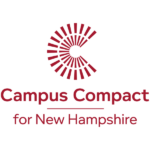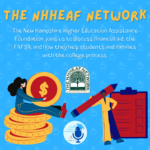Facilitating Conversations for Change: Leading Constructive Dialogues
This recorded session offers ideas and tools to facilitate constructive conversations on campus and lead inclusive dialogues with students, staff, and faculty. The session draws on Practicing Democracy: A Toolkit for Educating Civic Professionals by Nick Longo (coming early 2023), a guide on using civic prompts to educate future citizen professionals. This recorded session is available to Campus Compact members only. Learn how to get started with a compact.org user account to access the recording. Watch the recording →
Engaging Community Partners as Co-Educators, Comrades, and Co-Conspirators
It is commonly accepted in the community engagement field that community partners function as co-educators of students. However, it is difficult to put this idea into practice when creating and implementing a course. In this presentation, you’ll hear from pairs of faculty and community partners about how their co-educator partnerships work in practice. You’ll also hear their candid insights about the opportunities and challenges inherent in this kind of relationship. This resource is available to Campus Compact members only. Learn how to get started with a compact.org user account to access the webinar. Watch the recording →
Anti-Racist Community-Engaged Learning
Campus Compact has made available video recordings from a virtual symposium, “Anti-Racist Community-Engaged Learning: Principles, Practices, and Pedagogy.” Held in February 2022, the symposium explored topics such as principles of anti-racist pedagogy, voices from the field, and creating an anti-racist community of practice. The symposium was sponsored by Campus Compact, the Massachusetts Department of Higher Education, Salem State University, Worcester State University, Fitchburg State University, and the University of Massachusetts Amherst. View the recorded sessions.
Equity-Based Service-Learning
This Knowledge Hub from Campus Compact allows students to delve deeper and enrich their service-learning experience by looking at larger issues, beginning with the question of “Why.” Why are these communities in need? Why are these communities similar in demographics regardless of where they are located across the country? Why have the needs been consistent for several decades? Asking these questions gives students the opportunity to understand the power dynamics within the communities they seek to serve. This element of asking difficult questions magnifies the service-learning experience and enables them to develop a critical lens and a sense of civic…
Building Local Capacity
One of the biggest challenges for universities seeking to be effective community partners is to identify partners and help those partners increase their own economic development capacity. This Knowledge Hub from Campus Compact contains links to resources on best practices, and models for effective, sustainable partnerships.
The Role of Libraries in Engagement Work
This Knowledge Hub from Campus Compact provides a compilation of examples showing the myriad ways that libraries can help deepen community relationships and further the ongoing engagement efforts of college and university campuses.
Community Engagement Professional Credentialing
Campus Compact’s Community Engagement Professional Credential offers a framework for campus-based community engagement professionals to advance their work. It also allows them to achieve formal recognition for the knowledge and skills they develop in their careers. Start by earning core competency credentials—digital badges that demonstrate knowledge, skills, experience, and critical commitments in a specific area of the work. Become fully certified by earning credentials across a range of competency areas that are critical to success in higher education civic and community engagement. This program is available only to professionals working at Campus Compact member institutions. Earn badges in the three…
Engaged Research
One of a wide range of Knowledge Hubs from Campus Compact, Engaged Research offers a vetted list of suggested readings and other useful resources on methods and principles for engaging in ethical and reciprocal research with communities.
Civic Action Plans
Campus Compact’s Civic Action Plan Library offers plans submitted by member campuses across the country to further the public purposes of higher education. These plans set out a path for maximizing the impact of community engagement on students and communities. In addition to models from a range of institutional types, this library provides resources for planning, developing, publicizing, and assessing civic action plans. You’ll also find a portal for submitting your own plan.
Risk Management in Community Engagement
This knowledge hub provides resources and information for managing risk and ensuring safety in community-engaged learning experiences and campus-community partnerships.
Community Partnerships
One of a wide range of Knowledge Hubs from Campus Compact, Community Partnerships offers useful resources and readings to help campuses forge effective partnerships. Resources include suggested readings on campus-community partnerships and asset-based community development, sample Memorandums of Understanding (MOUs), and useful web resources.
Comprehensive Neighborhood Revitalization: Community Economic Development through Corporate Investment
Universities can support local neighborhood revitalization in many ways. In addition to the hiring, procurement, investment, and real estate, this might also include support for local schools and local business development. This Knowledge Hub from Campus Compact contains resources and best practices to guide your campus in developing your strategy to support comprehensive neighborhood revitalization.
Aligning Institution to Community
Colleges and universities are anchor institutions in their communities. To adopt an anchor mission entails adopting a strategy to leverage institutional assets. Ways to leverage economic assets and revenues to promote local private-sector development include: Directing a greater percentage of purchasing power toward local and minority vendors based in the community. Hiring a greater percentage of the workforce locally. Providing workforce training for people needing assistance in the community. Incubating the development of new businesses, including social enterprise among nonprofits. Leveraging real estate development to promote local retail, employer-assisted housing, and community land trusts. Using pension and endowment funds to…
Principles of Best Practice in Community Service Work Study
This guide outlines best practices in combining college and university work-study experiences with community service and service-learning. Ten principles were created after conducting focus groups with practitioners from 52 colleges and universities that help construct an effective community service work-study program. Specific examples are included.
Teacher Education Service-Learning Guidebook
This guidebook covers essentials to service-learning specifically relating to teacher education. Includes action plans, worksheets, and assessment tools.









